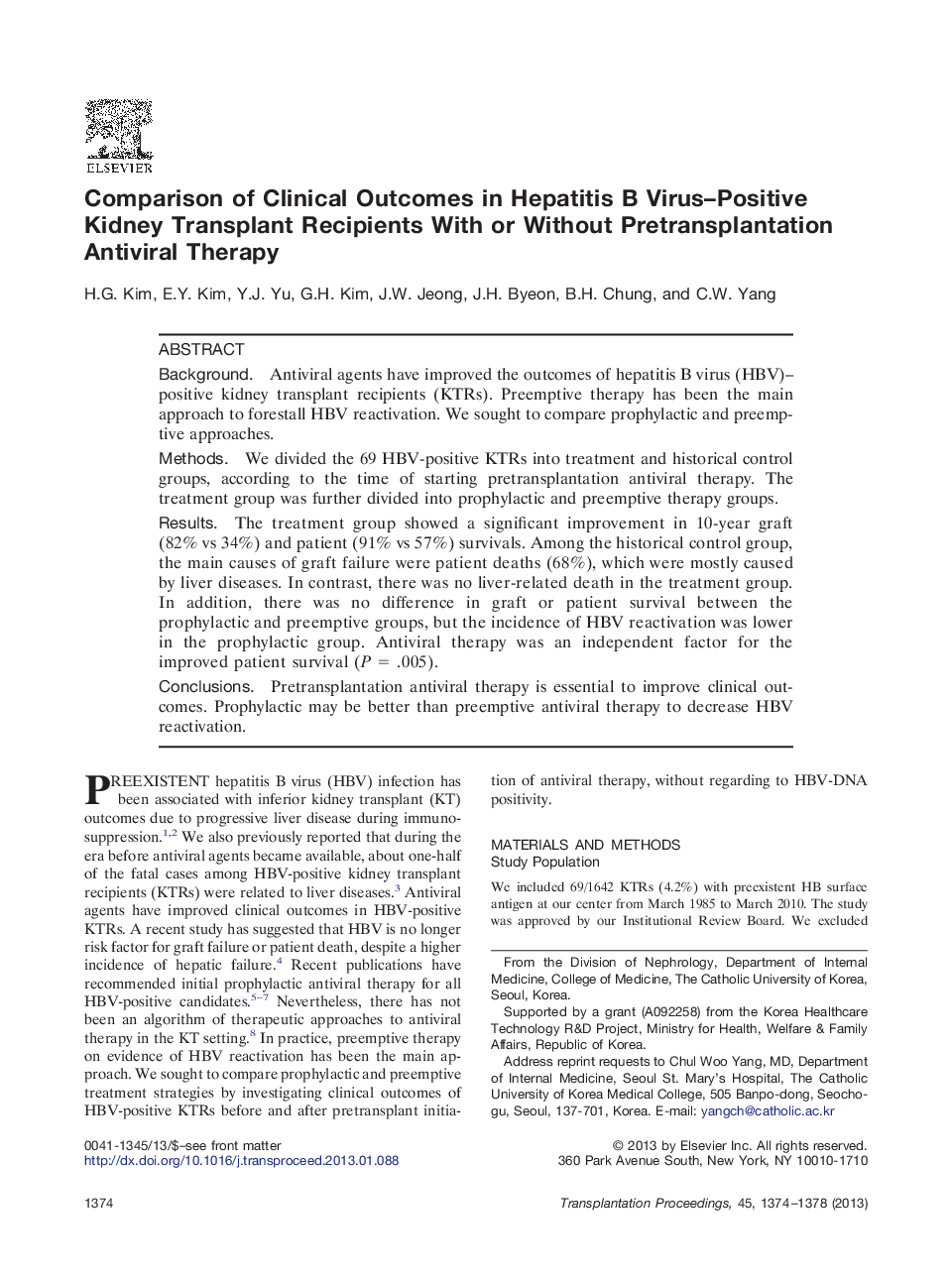| Article ID | Journal | Published Year | Pages | File Type |
|---|---|---|---|---|
| 4257276 | Transplantation Proceedings | 2013 | 5 Pages |
BackgroundAntiviral agents have improved the outcomes of hepatitis B virus (HBV)–positive kidney transplant recipients (KTRs). Preemptive therapy has been the main approach to forestall HBV reactivation. We sought to compare prophylactic and preemptive approaches.MethodsWe divided the 69 HBV-positive KTRs into treatment and historical control groups, according to the time of starting pretransplantation antiviral therapy. The treatment group was further divided into prophylactic and preemptive therapy groups.ResultsThe treatment group showed a significant improvement in 10-year graft (82% vs 34%) and patient (91% vs 57%) survivals. Among the historical control group, the main causes of graft failure were patient deaths (68%), which were mostly caused by liver diseases. In contrast, there was no liver-related death in the treatment group. In addition, there was no difference in graft or patient survival between the prophylactic and preemptive groups, but the incidence of HBV reactivation was lower in the prophylactic group. Antiviral therapy was an independent factor for the improved patient survival (P = .005).ConclusionsPretransplantation antiviral therapy is essential to improve clinical outcomes. Prophylactic may be better than preemptive antiviral therapy to decrease HBV reactivation.
